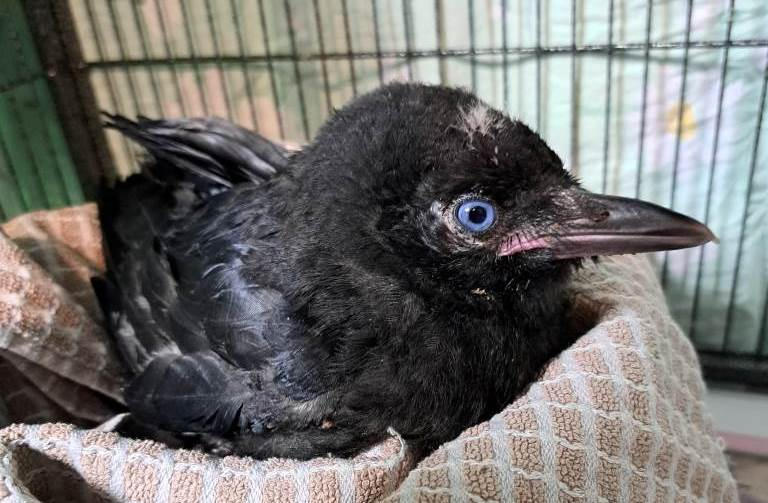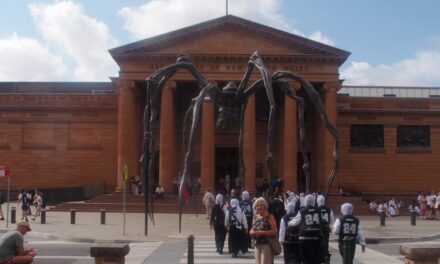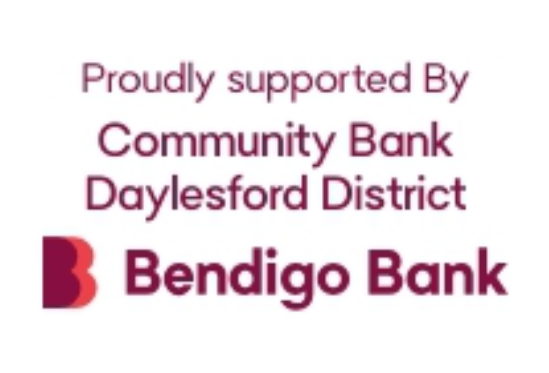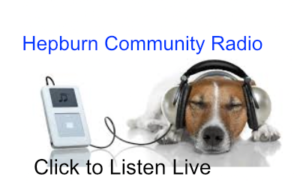Tanya Loos
This week I have been honouring this sweet poor baby raven. You can tell he is a juvenile as he has startling blue eyes, whereas adult ravens have white eyes. This little guy had to be compassionately euthanised after rescue, as he was suffering from metabolic bone disease.
Metabolic bone disease is more often known by the names rickets and osteoporosis. In birds, it means their leg, chest and other bones and even beaks may be brittle and snap. So how does a very young bird like this raven get MBD?
You may know that rickets in human children is caused by severe malnutrition – a common disease during times of famine. The MBD affecting wild birds is the same – bone fractures and soft brittle beaks, claws and keel are due to a severe deficiency in essential nutrients such as calcium, phosphorus and Vitamin D3.
Ravens are omnivores that eat a wide range of foods; from crickets to baby birds to lizards to berries and roadside carrion. All of these foods have a rich nutritional profile.
Unfortunately, magpies and ravens are frequently fed by well-meaning humans. And if fed every day, they come to rely on these human-offered foods. Mince meat, bread and rice are not nutritionally complete foods. If the adult birds are unhealthy and struggling with nutritional deficiencies due to being fed, then the baby birds, such as this raven are born with rickets.
Some wildlife carers report that the young birds break their legs on their first foray out of the nest! This is absolutely heartbreaking for the wildlife carers and vets who have to euthanise the birds, as its completely avoidable. MBD does not occur in wild birds eating their own wild caught food.
I know the drive to feed birds is very strong indeed! It feels so good when a wild bird takes food that it is offered – it feels like a magical moment of connection across species. But if it is food you would eat, don’t give it to a magpie or a raven!
Nalini Scarfe from Boobook Wildlife Shelter who kindly supplied the photo of the poor baby raven sums it up beautifully:
“If you simply ‘must’ feed the birds, and I include all birds here including of course magpies (whom we all love) set up a compost heap or worm farm, add lots of mulch to your garden and water the lawn regularly. Encourage them naturally into your garden. Help our beautiful birds to stay wild and healthy. This is a win, win for everyone. Us, and all the birds that inhabit our world.”
I have a chapter on the unintended consequences of feeding birds and other wildlife in my forthcoming book Living with Wildlife: a guide for our homes and backyards which is now available for pre-order on the CSIRO Publishing website: https://www.publish.csiro.au/book/8095/
Tanya Loos is a local naturalist, author and environmental consultant who loves to work in the environmental not-for-profit sector. She is the author of “Daylesford Nature Diary” available from her website or from Paradise Books in Vincent Street, Daylesford.
Have you got any nature questions for Tanya? Send them in!











